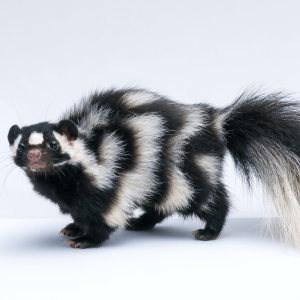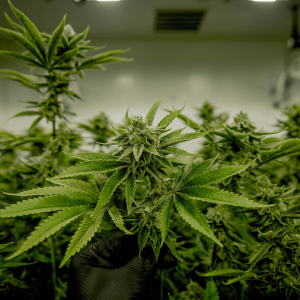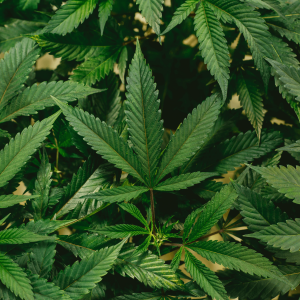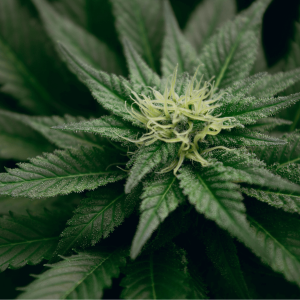If you’re sitting there, scratching your head, and wondering what is skunkweed? You’re in the right place.
Skunkweed may not sound super appealing, but it’s actually a pretty generic term among stoners everywhere. Basically, skunkweed is a type of cannabis that, true to its name, smells a lot like true skunk spray. It all started back in the 70s when people started selectively breeding cannabis for the purpose of a more pungent smell.
Knowing about skunk cannabis is important not just for navigating the world of weed, but also for appreciating the art of crafting different strains. In this blog, we’re going to dive into all the cool details about skunkweed – its characteristics, its uses, and how it’s making waves in the cannabis industry. We’ll give you all the knowledge, bust some myths, and maybe even get you interested in this intriguing variety. Let’s go!
History and Origins
The term “skunkweed” traces its origins back to the distinct aroma that these particular strains of cannabis emit. Much like the pungent scent of a skunk, the smell of skunk weed is potent and unmistakable to those familiar with it.
The early cultivation and distribution of skunkweed and other strains began primarily on the West Coast of the United States during the 1970s. It was a time of experimentation and exploration in cannabis cultivation, and skunkweed was at the forefront, becoming a popular selection among cultivators for its distinct aroma and potent effects.
The strains quickly spread across the country, and eventually to other countries like the Middle East and South America, due to the global scale of their popularity and the ease with which they could be grown even in unfavorable conditions.

What is Skunkweed: Differentiating Skunkweed From Other Cannabis Strains
When it comes to cannabis strains, skunkweed stands out due to its distinct characteristics.
Unlike other cannabis strains that often possess a sweet or earthy aroma, skunkweed is known for its pungent smell, akin to that of a skunk.
This unique scent is a result of the presence of specific terpenes, which are organic compounds that influence the plant’s fragrance and taste.
Key Visual and Olfactory Characteristics of Skunkweed
Visually, skunkweed plants are typically dense and bushy with vivid green leaves, often showing orange or purple hues. The buds are covered in crystalline trichomes, which signal their high THC content, though they also contain notable levels of THCa, the non-psychoactive precursor to THC. However, the most distinctive feature of skunkweed is its unmistakable, potent odor.
These skunk strains are named for their strong, skunk-like scent that can be detected from afar. This powerful aroma, combined with the plant’s rich cannabinoid profile, makes skunkweed one of the most recognizable cannabis varieties.

Chemical Composition
The chemical composition of skunkweed, just like all cannabis strains, is mainly determined by its cannabinoid profile.
Skunk marijuana is packed with cannabinoids, with tetrahydrocannabinol (THC) and cannabidiol (CBD) being the most common ones, and THC levels often go beyond 20%.
The ratio of these compounds has a big impact on the psychoactive effects and potential therapeutic benefits of these strains.
Alongside cannabinoids, the skunkweed’s aroma, potency, and effects are also influenced by its terpene profile. Terpenes are aromatic compounds found in many plants. They produce distinctive scents such as citrus, pine, tobacco smoke, and of course, skunk in this case.
Some studies suggest that terpenes in cannabis may also contribute to its effects, a phenomenon known as the “entourage effect”, enhancing the overall impact of the strain.
Effects and Uses of Skunkweed
Skunk cannabis has some pretty surprising effects and uses. From its role in traditional medicine to its recreational applications, skunk weed goes way beyond what meets the eye.
Let’s dive into a detailed exploration of the different effects and uses of this fascinating cannabis plant variety!

Recreational and Medicinal Applications of Skunkweed
Skunkweed is renowned for both its recreational and medicinal uses.
On the recreational front, it’s often used for its psychoactive properties, providing users with a sense of relaxation and euphoria.
In contrast, the medicinal uses of skunkweed are quite extensive. Cannabis has been used to alleviate chronic pain, reduce inflammation, and mitigate symptoms of conditions such as epilepsy, multiple sclerosis, and even certain types of cancer.
Common Reported Effects and Experiences of Skunkweed
Those who use skunkweed commonly report a variety of effects and experiences, often dependent on the strain and individual tolerance.
Most users describe feeling deeply relaxed and a little happy, while others may find themselves experiencing altered sensory perception. Some might also report heightened creativity or introspection.
However, it is key to note that skunkweed smoke can also cause less desirable effects in some individuals such as paranoia, elevated stress levels, anxiety, or dry mouth. As such, it is always recommended to use skunk weed responsibly and in a safe, comfortable environment.
Controversies and Concerns
As with all other cannabis products, skunkweed is considered a relatively taboo topic. Here’s why:
Legal Status and Regulation of Skunkweed
The legal status of skunk cannabis varies significantly worldwide, creating a controversial landscape.
In some jurisdictions, smoking skunkweed is fully legal and regulated, while in others, its possession, distribution, or use may lead to criminal charges. The inconsistency in regulations often leads to confusion and debates about its legal status.
Advocates argue for its medicinal benefits, and critics highlight the potential for misuse and addiction. This ongoing debate influences the development of laws and regulations surrounding skunk cannabis, leaving its legal status in a constant state of flux.
Safety and Health Concerns of Skunk Cannabis
Skunk weed, like any substance, comes with its own set of safety and health concerns. While some users report therapeutic effects, others express concerns about potential health risks.
Prolonged cannabis use can lead to dependency, and there are also concerns about its effect on mental health, specifically the potential to cause or exacerbate conditions like anxiety or psychosis.
Furthermore, like all plants, skunkweed can carry pesticides or other harmful substances if not properly grown and harvested, adding another layer of risk. These health and safety concerns contribute significantly to the ongoing debates around skunk cannabis.
Cultivation and Strain Variations of Skunkweed
Did you know that skunkweed has its unique cultivation process and strain variations that set it apart from other marijuana strains? Keep reading for an inside look.
Growing Conditions and Challenges of Skunkweed
Skunkweed thrives in a warm, sunny climate with temperatures ideally between 70 to 85 degrees Fahrenheit. It requires a slightly acidic to neutral pH and rich, well-drained soil to grow optimally.
One of the challenges in growing skunk cannabis is its strong, pungent odor, requiring appropriate measures for odor control. It is also susceptible to pests like spider mites, so regular checks are necessary.

Popular Skunk Strains
Several popular skunk strains have risen to prominence among cannabis enthusiasts and many growers.
The Super Skunk strain, known for its robust aroma and high yield, is preferred by commercial growers. Early Skunk is favored for its resistance to mold and robustness, making it suitable for less-than-optimal growing conditions. Other strains like Lemon Skunk and Shiva Skunk have quickly risen in popularity thanks to their skunk genetics, as well.
Finally, Skunk #1, a legendary strain, continues to be popular due to its balanced effects and consistent growth pattern.
The Skunkweed Market
The skunk cannabis market exhibits a dynamic landscape, largely determined by its availability and pricing.
Thanks to advanced indoor cultivation techniques and widespread distribution, skunk cannabis is pretty easy to find in different areas. When it comes to pricing, though, it can vary a lot based on quality, strain, and where you are.
However, skunk cannabis consumption is definitely on the rise. People are more aware of its benefits and with regulations easing up, more stoners are giving it a try. And it’s not just for fun – Skunk cannabis is getting recognized for its therapeutic uses too, so its popularity keeps growing.

Myths and Misconceptions
An array of myths and misconceptions exists about skunkweed, often leading to unnecessary fears or misuse.
One common misconception is that all skunk cannabis plants are due to their pungent smell, they are harmful and should be avoided. This couldn’t be further from the truth! Many varieties of skunkweed are entirely safe, offering medicinal properties that can aid in managing various health conditions.
Additionally, some believe that skunk cannabis is an invasive species that negatively impacts all ecosystems. While it’s true that certain types can spread rapidly, many native ecosystems rely on skunkweed as part of their natural balance.
Dispelling these myths is crucial in appreciating skunkweed’s potential benefits and understanding its role within our ecosystems.
Conclusion
In conclusion, skunk cannabis, with its distinct characteristics and uses, has proven to be a fascinating cannabis plant variety.
Through this blog, we’ve uncovered that skunkweed is not only known for its robust survival skills but also for its diverse medicinal applications and environmental benefits.
However, it’s important to remember that like any other plant, skunkweed requires responsible cultivation and usage. Its potential lies in the hands of those who respect its properties and strive to understand its nature better.
Remember, nature gifts us with wonders like cannabis seeds; it’s up to us to unlock their potential in a sustainable and respectful way.
Frequently Asked Questions
1. What is skunkweed?
Cannabis skunkweed, often simply referred to as “skunk,” is a potent variety strain of cannabis sativa strains that are known for their strong, pungent odor, reminiscent of the scent given off by skunks. These strains are noted for their high THC content, which results in a powerful psychoactive effect. Skunkweed is popular amongst recreational cannabis users for its potency, but it’s important to note that due to its THC levels, smoking it may also pose a greater risk of adverse psychological effects.
2. What are the uses of skunkweed?
Cannabis skunkweed is primarily used for recreational purposes due to its THC content, which provides potent psychoactive effects. Users often seek it out for its intense high and the euphoria that it can induce. In addition to recreational use, skunkweed also has medicinal applications. Some people use it to manage pain, reduce nausea, stimulate appetite, and alleviate symptoms of certain mental health conditions like anxiety and PTSD. However, its high THC content means it should be used judiciously and under medical guidance when used for therapeutic purposes.
3. What conditions are ideal for cannabis skunkweed growth?
Cannabis Skunkweed, like most cannabis strains, thrives under specific growing conditions. It prefers an environment with plenty of light, as photosynthesis is crucial for its growth and development.
It thrives in temperatures ranging from 70-85 degrees Fahrenheit during the day. Humidity should be regulated to prevent mold growth, with optimal levels ranging from 40-70% in the vegetative stage to around 40-50% in the flowering stage.
The PH of the soil should be kept around 6.0-7.0, and the plant requires nutrient-rich soil or medium for optimal growth. Skunkweed growers should also ensure plenty of space for each plant, as this strain of weed tends to bush outwards with robust branching. Regular watering is necessary, but overwatering should be avoided to prevent root rot.
4. What does skunkweed look like?
Cannabis skunkweed, often simply referred to as ‘skunk’, is a potent strain of cannabis that is characterized by its distinctive aroma, similar to that of a skunk. This plant typically displays a tall, tree-like structure, with large fan leaves. The leaves are usually a vibrant green color, sometimes with purple or blue hues. Its buds, which are the parts most commonly used, are densely packed and covered in crystalline resin rich in THC. The buds are often dark green in color with orange or red hairs, known as pistils, threading through.
5. Why is skunkweed also referred to as stinkweed?
Skunkweed, often referred to as ‘Stinkweed,’ gets its nickname from the strong, pungent odor it releases, especially when the leaves of the plant are crushed or disturbed. This potent smell, reminiscent of a skunk’s spray, is attributed to the high concentration of terpenes, particularly myrcene, limonene, and caryophyllene. These terpenes not only give the plant its signature scent but also contribute to its therapeutic properties.
6. Can skunkweed be used for medicinal purposes?
Yes, cannabis skunkweed can be used for medicinal purposes, although it is a drug typically noted for its recreational drug usage due to its high THC content. The high concentration of THC in skunkweed can have therapeutic benefits, such as pain relief, reducing nausea, and stimulating appetite — particularly useful for individuals undergoing treatments that utilize drugs, like chemotherapy.
Some people also find it effective in managing mental health conditions such as anxiety and Post Traumatic Stress Disorder (PTSD). However, due to its potency, it’s essential that medical usage of cannabis skunkweed is under the guidance of a healthcare professional to manage potential adverse effects effectively.

 Rewards
Rewards




